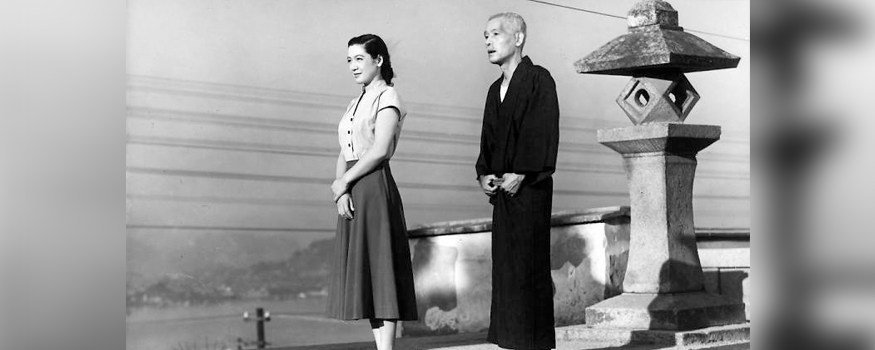The Cosford Cinema is proud to present a screening series of the top 10 films of the 2022 Sight & Sound Top 100 Poll: The Greatest Films of All Time.
Launched in 1952 and conducted every 10 years since, the poll includes filmmakers, critics, and journalists from around the world. The results are published in “Sight & Sound,” a monthly film magazine published by the British Film Institute.
TOKYO STORY | YEAR: 1953 | DIRECTOR: Yasujirô Ozu | 4K DCP projection | RUNNING TIME: 136 minutes | UNRATED (no offensive material) | In Japanese with English subtitles.
A profoundly stirring evocation of elemental humanity and universal heartbreak, “Tokyo Story” is the crowning achievement of the unparalleled Yasujiro Ozu. The film, which follows an aging couple’s journey to visit their grown children in bustling postwar Tokyo, surveys the rich and complex world of family life with the director’s customary delicacy and incisive perspective on social mores.
Featuring lovely performances from Ozu regulars Chishu Ryu and Setsuko Hara, “Tokyo Story” plumbs and deepens the director’s recurring theme of generational conflict, creating what is without question one of cinema’s mightiest masterpieces.
“Tokyo Story” took the fourth spot in the Sight & Sound poll. Admission is $5 per film or $40 for a series pass. Students with Cane card use code UMSTUDENTS at checkout for free admission. Tickets available via https://events.miami.edu/event/the_sight_sound_top_ten_tokyo_story_1953.
“‘Tokyo Story’ has frequently been acclaimed by filmmakers and critics alike as the greatest film ever made, and it very arguably could be. Regardless of where you’d place it on the hierarchy of the “best evers,” ‘Tokyo Story’ is certainly the ultimate family film—that is, the ultimate film about family and what family actually means.
It is, of course, about a family, observing three generations in a single unit to analyze the vast differences that separate them. In movies like ‘Late Spring’ and ‘Early Summer,’ Ozu looks at the changing face of Japanese culture in the 1950s, when a younger generation challenged and defied traditions that were pivotal to older generations.
In ‘Tokyo Story’ he places a lot of value on family, but one that doesn’t necessarily place judgment upon those who abide by the inevitability of change. Each generation has its own set of cultural rules that they follow, without a single generation being right or wrong. It’s much more complicated than that, and Ozu tells the audience that family is just that: complicated.” — Adam Grinwald, “Collider”

